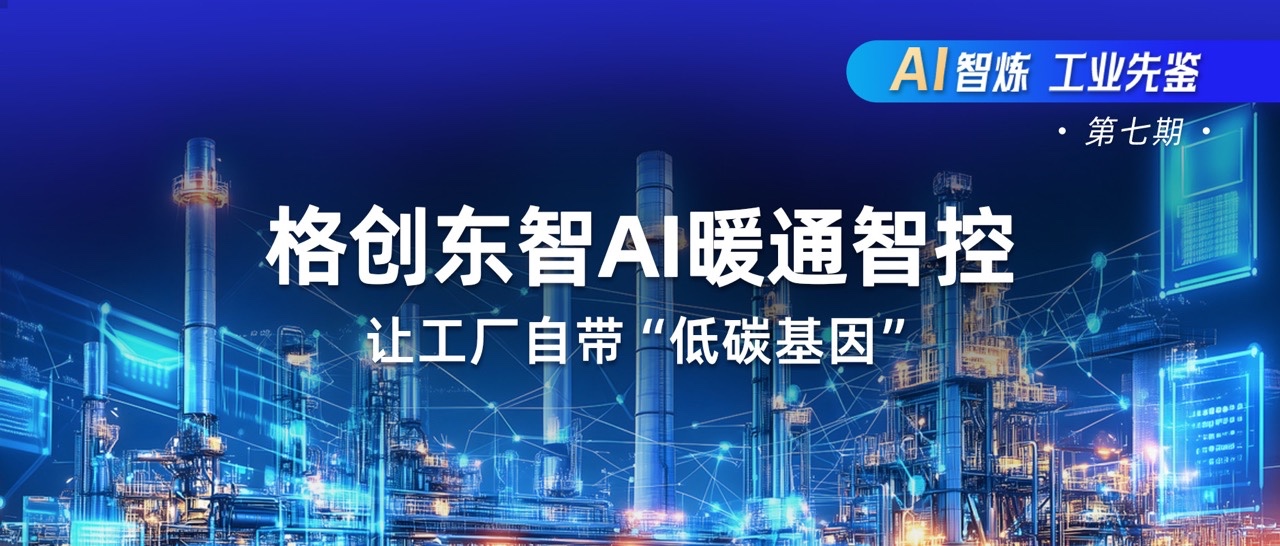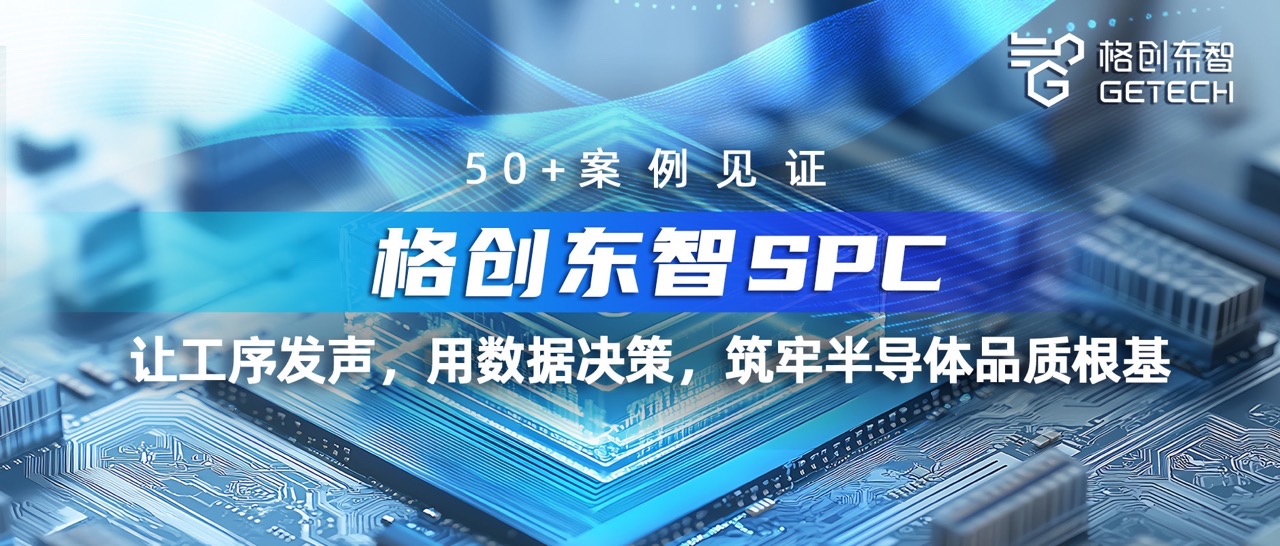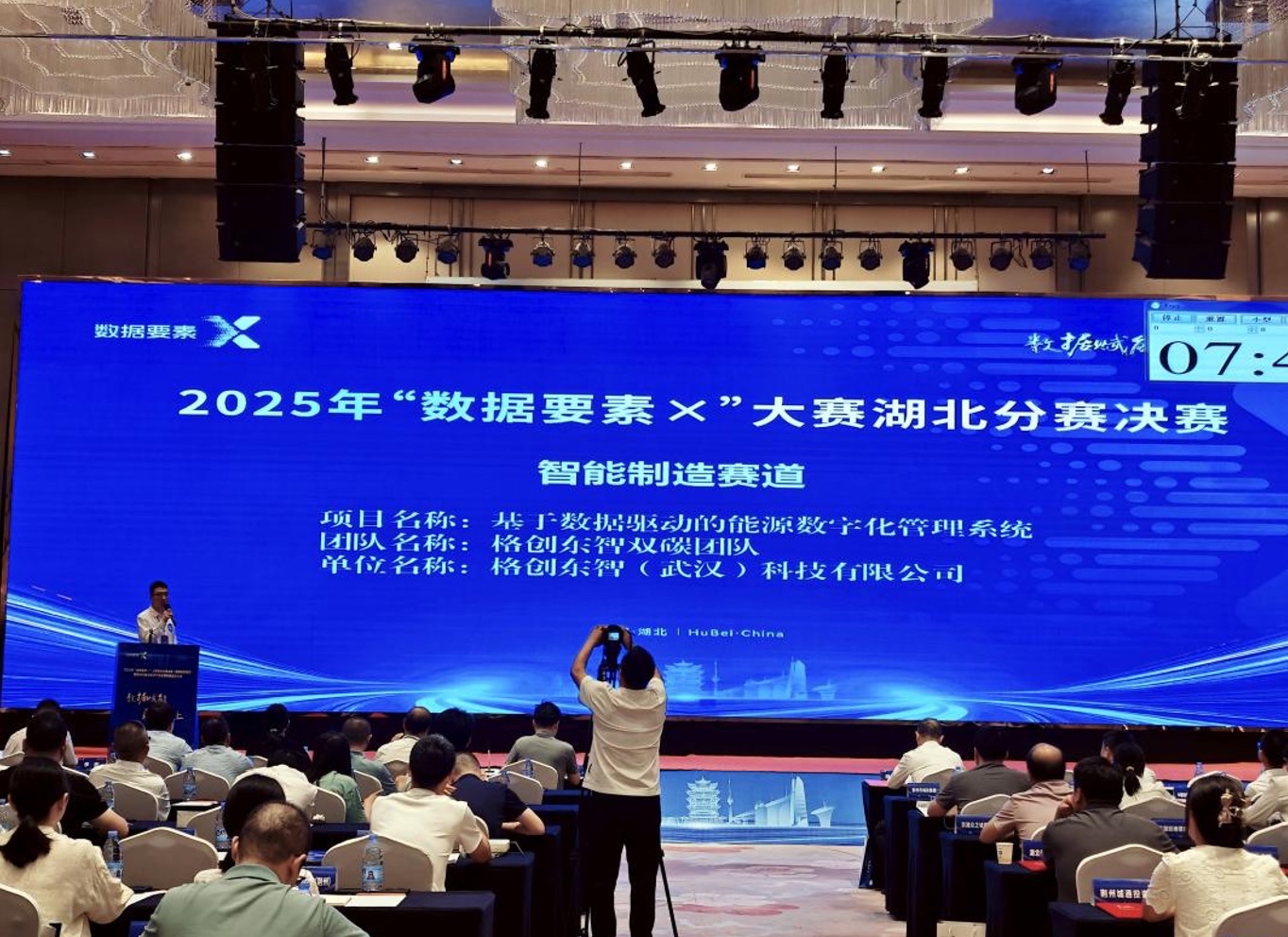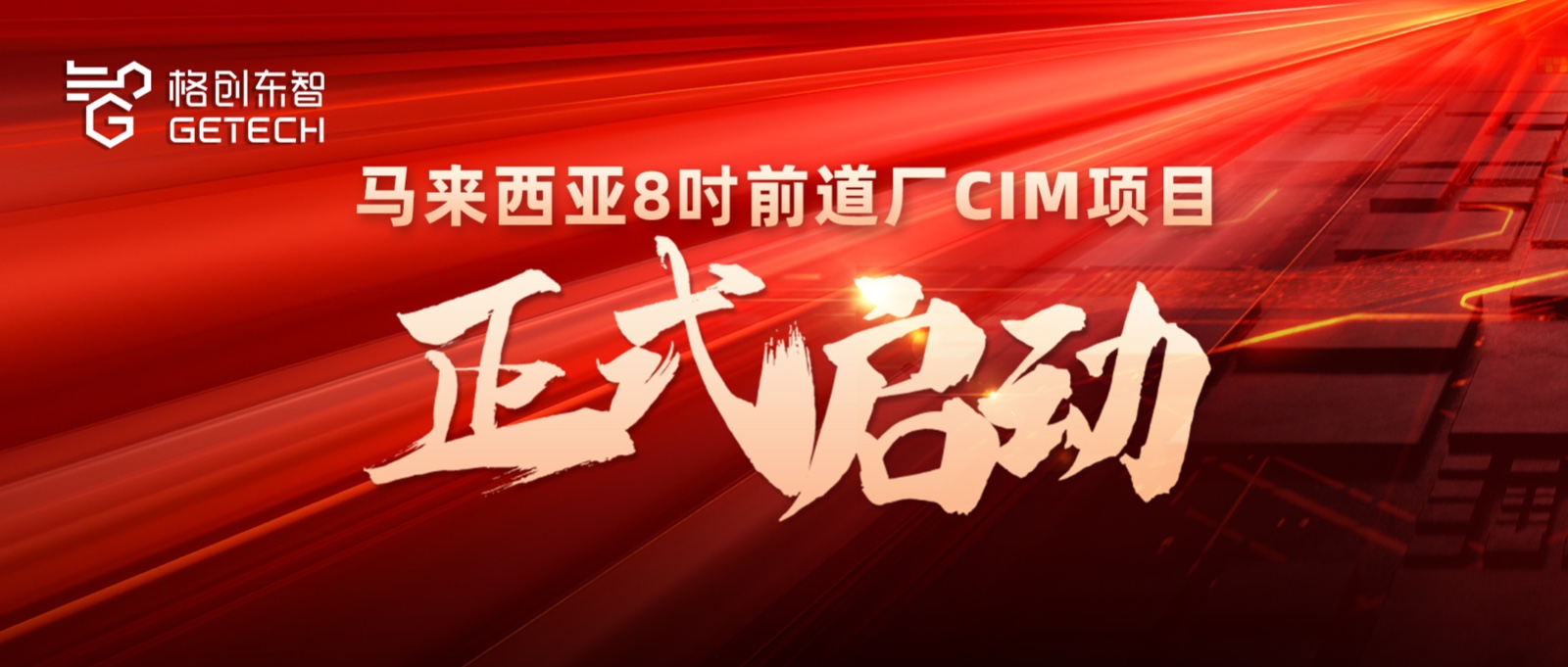Industrial Software Expert Interview Episode 3: When AI Apprentices to Industry
Currently, China has become the global manufacturing center, with the largest industrial output and the most industrial scenarios. In the new round of industrial transformation, smart manufacturing has become the main direction for countries to seize strategic high ground. As a key core technology of smart manufacturing, industrial software plays a crucial role in promoting industrial digital transformation.
Focus on the 'Soft Power' of Chinese Manufacturing
GTRONTEC Industrial Software Expert Interview Episode 3
When AI Apprentices to Industry
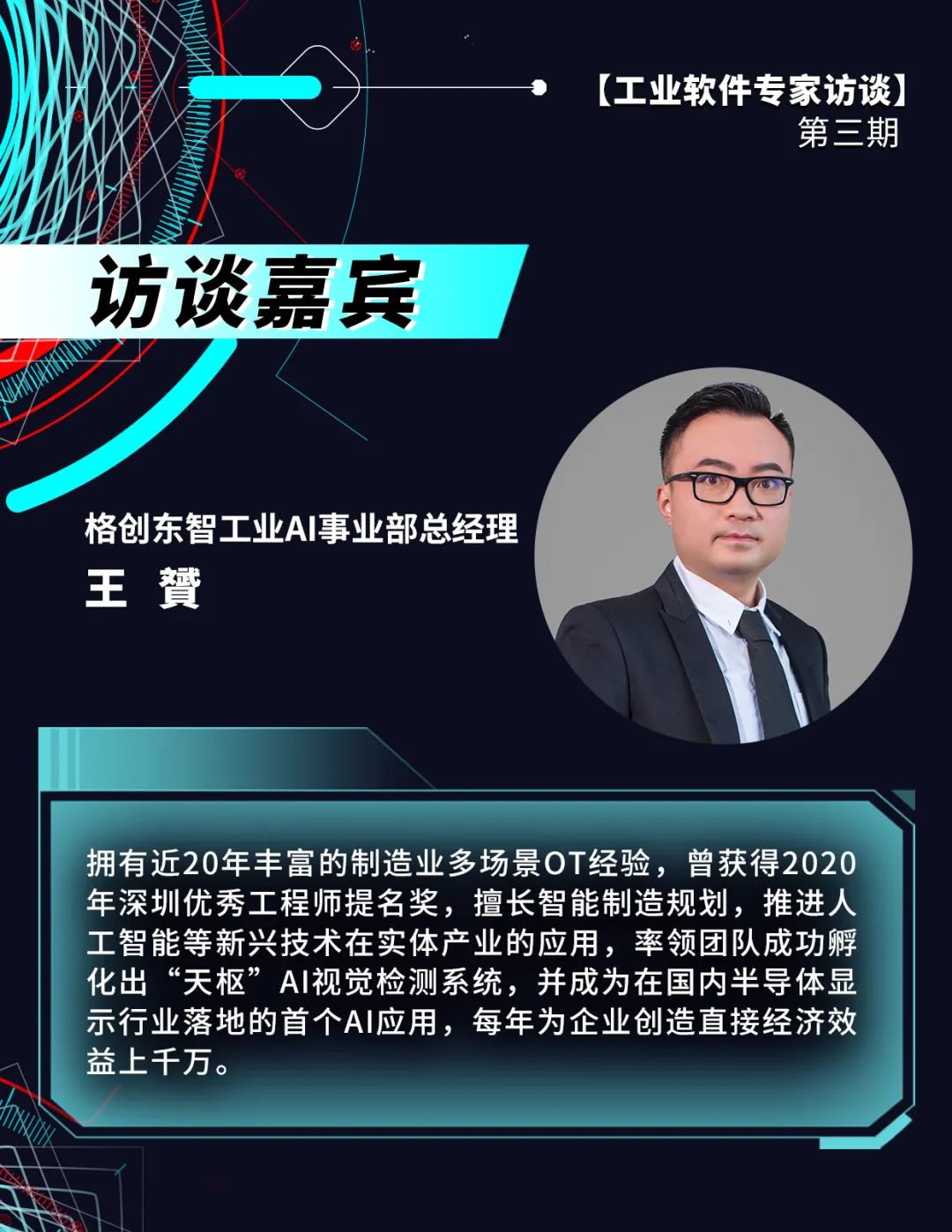
Here is the expert sharing, enjoy:
Recently, the emergence of ChatGPT has sparked global discussion about AI.
In fact, the concept of AI was proposed as early as the 1950s. After years of theoretical and practical development, it has integrated into multiple economic fields and achieved many accomplishments. For example, under the new wave of technologies like big data, cloud computing, IoT, and 5G communication, AI is playing an increasingly important role in industrial manufacturing, becoming a strong engine for digital transformation.
1
All AI, but Very Different
Currently, AI has multiple application scenarios in the industrial field, especially in quality inspection and data analysis, where it has relatively mature applications. To systematically develop industrial AI applications, not only technical aspects but also enterprise awareness and talent cultivation must be considered.
Compared to common general AI applications, due to the presence of physical objects in industrial AI scenarios, there are significant difficulties in data collection, feature extraction, model training, and talent cultivation. For example:
Industrial AI data acquisition is difficult and requires security and confidentiality without leaving the domain. Currently, many industrial enterprises have weak data foundations, with issues like data collection and data silos being prominent. At the same time, enterprises are very cautious about their data, requiring it to stay local. This means industrial AI can only analyze data locally, but on-site computing power may be insufficient, preventing full data analysis and modeling.
Industrial scenarios are complex and diverse. For the same product, different enterprises and customers have大量个性化定制 due to varying scenarios or parameters, making it hard to create universal industrial AI products. Small sample problems for multiple defects, especially rare defects, pose great challenges to algorithms.
Industrial AI talent is scarce. There are too few people who understand both technology and industry. AI engineers who only know technology are unaware of factory operations, which input factors affect scheduling, where data comes from, what emergencies to consider, and what optimization indicators are real pain points. This enterprise information is essential for AI engineers.
If 'working behind closed doors,' once products change, the algorithm model can vary greatly. Meanwhile, algorithm deployment speed cannot keep up with product iteration, and engineers lack the skills to train models themselves, which are common issues in industrial AI promotion.
2
Why is Industrial AI Important?
Before AI was applied to industry, lean management and some industrial software could solve many production problems. So, what problems and challenges can traditional methods not solve, and why can AI solve them?
Industrial AI technology is an innovative technology, an advancement and升华 of traditional lean management. Compared to previous lean management, industrial AI has certain logical judgment and analytical capabilities, complementing existing industrial software.
Currently, industrial processes are increasingly complex, product quality requirements are higher, and there is heavy reliance on personnel experience. Industrial AI emerged as a tool to solve these on-site pain points, making production efficiency and process analysis more intelligent.
Throughout the entire lifecycle of industrial products, industrial AI technology can be applied to various stages and fields, such as market analysis, product design, manufacturing control, logistics management, quality inspection, material traceability, behavior recognition, etc. It enables production lines to have autonomous monitoring, analysis, and prediction capabilities, enhancing intelligence, reducing labor, ensuring quality stability, and speeding up production.
Looking at specific scenarios: in the incoming material环节, AI can use OCR recognition modules to identify and count materials, ensuring zero misuse; in employee operations, AI vision can provide training,手法矫正, and违规预警, improving efficiency while monitoring异常行为 for safety; in production, AI vision enables precise加工, visual-guided assembly, disordered material grasping, and robot group collaboration; in quality inspection, AI vision can detect and judge defects, control quality, reduce manual work, increase speed, and collect multi-dimensional data for real-time analysis of quality factors, warning managers and dynamically adjusting plans.
3
AI Also Needs to Apprentice to Industry
Industrial scenarios are complex, fragmented, personalized, and specialized. Current general AI technology is not sufficient for simple reuse in various industrial scenarios. For example, different materials, defects, shapes, and精度 products have varying requirements for AI, making industrial AI implementation a cross-disciplinary, cross-field, cross-industry systems engineering problem.
Compared to To C AI implementation, industrial scenarios are more diverse, with difficult migration between scenes and even harder between industries. Industry has its own Know How; only industrial AI models developed with production Know How and process requirements can truly suit industrial scenes.
Therefore, industrial AI needs industrial genes,深入 production frontline, deeply understand manufacturing and products, learn and master production and management requirements to create matching algorithm models, achieve rapid iteration and optimization for accurate results, and better solve problems in production.
Specifically, convert computing power and generalization ability into deep understanding of industrial scene application knowledge, integrate personnel experience, product mechanisms with big data analysis and deep algorithms to build industrial big data mechanism models,反馈 to production site, forming more data for AI training and optimization. This闭环 can break single project implementation and enable large industrial AI model落地.
Otherwise, industrial AI will only be superficial, with strong computing power and generalization but unable to meet actual industrial needs.
4
Where Can Industrial AI Go?
In the future, industrial AI in manufacturing should be lightweight, modular, low-code or even no-code, quickly and effectively helping factory engineers or supervisors solve problems to optimize production, making people willing to use and promote it.
Meanwhile, industrial AI applications will gradually extend from recognition, monitoring, warning to data analysis, prediction, and judgment, achieving autonomous decision-making and execution, ultimately capable of self-adjusting and optimizing processes.
Besides using supervised and unsupervised learning, industrial AI can also use NLP to analyze external data like industry reports and market analysis, assist in scheme design based on customer needs, and effectively avoid potential security risks.
At the same time, designed products can simulate performance, truly achieving AI implementation and ecology in the full product lifecycle, reaching self-monitoring, self-feedback, self-design, self-decision, self-production, self-execution, self-optimization闭环 management. Perhaps in the near future, 'product production management' can be done in the virtual world through digital twins or元宇宙 concepts, creating a true元宇宙生态.

